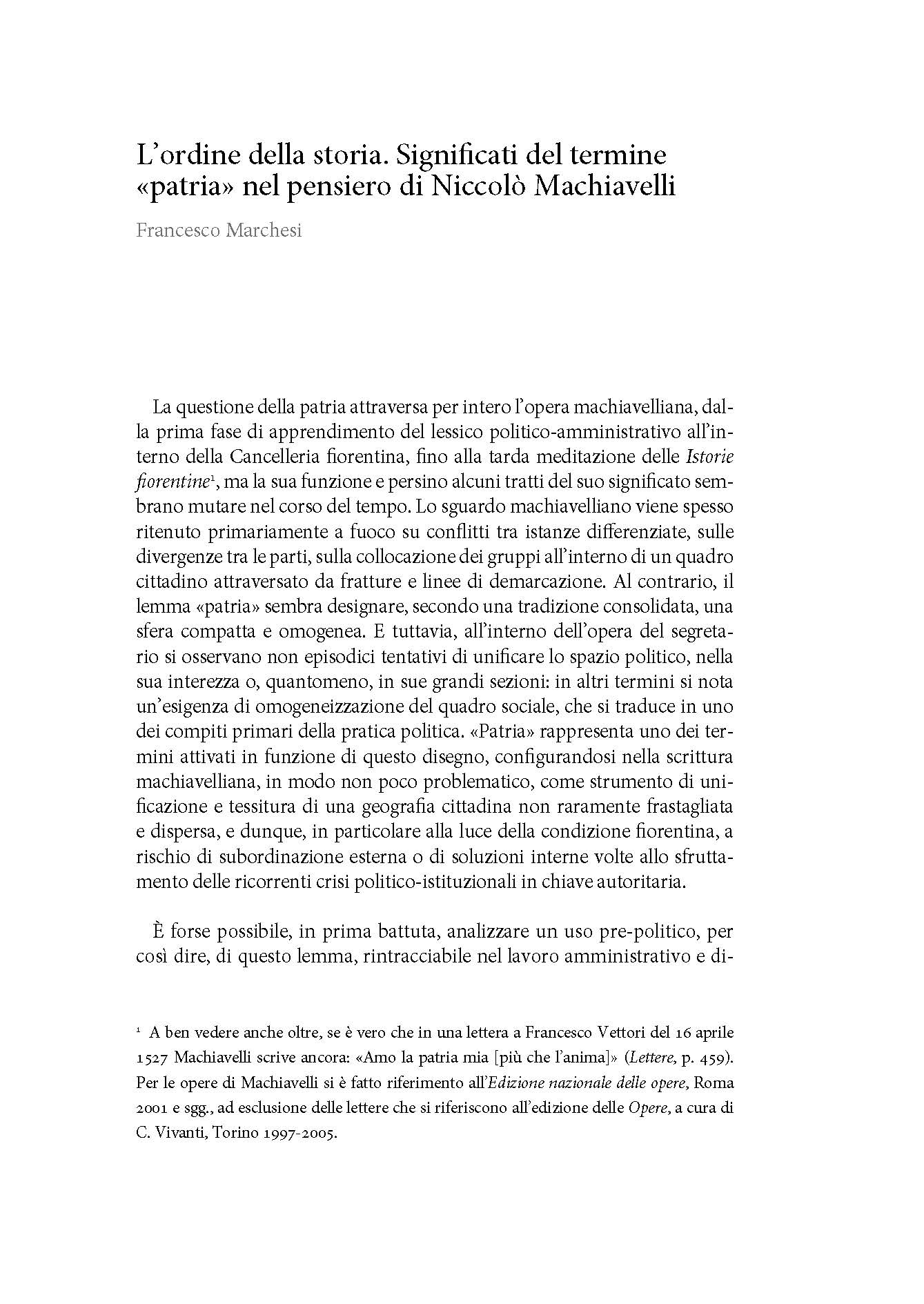L'ordine della storia. Significati del termine "patria" nel pensiero di Niccolò Machiavelli
Contenuto principale dell'articolo
Abstract
«Patria» is one of the distinctive term of the so called florentine (and italian) civic humanism. Niccolò Machiavelli acquires and transforms this heritage along three axis of reflection: the problem of foundation of the «patria», the theme of the health of the «patria» and risks that come from outside (wars and invasions) and from the inside (conspiracies), the topic of the «love of the country» by the republican citizen. Machiavelli, along his entire intellectual biography and often not in agreement with the tradition, tries to think the «patria» not as a unitary and homogeneous political form, but as a political criterion that permits to discern the specific and contingent configuration of social relations.

